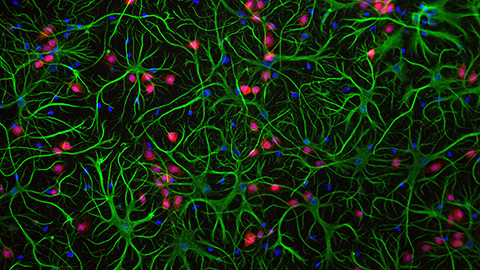
Control our thoughts and better science will follow
The COVID-19 pandemic has shined a light on the disproportionate burden that certain diseases and conditions — such as diabetes, metabolic syndrome and mental health disorders — have on historically excluded, marginalized communities. It also has drawn attention to the negative impacts of implicit biases and the social construct of race.
The American Society for Biochemistry and Molecular Biology Maximizing Access Committee’s symposia at Discover BMB in Seattle in March will examine the effects of implicit biases on science at the genomic level, including experimental design and data interpretations, and how they contribute to health disparities. This topic is of particular importance with the emerging use of genetics in the development of artificial intelligence mechanisms.
We must seek remedies and mitigate health disparities. This means asking tough questions, even of ourselves as scientists. We must examine how our implicit biases warp our lens as biomedical researchers. We must revisit our scientific past to understand better our present and, thus, prepare for our future.
Keywords: Genetics, race, implicit bias, data interpretation, health disparities, artificial intelligence.
Theme song: “Free your Mind” by En Vogue is a song that speaks to daily stereotypes, implicit biases and microaggressions that historically excluded, marginalized people face. If only those who make such judgments would free their minds, peace for all of us would follow.
This session is powered by our need, as scientists, to be mindful of our implicit biases — and the potential roles they play in our research questions, experimental designs and data analyses — so that we can mitigate them and thereby health disparities.
Speakers
Implicit bias
Ruma Bannerjee (chair), University of Michigan
Mahzarin Banaji, Harvard University
Race as a human construct: We are only human, not a race
Kayunta Johnson–Winters (chair), University of Texas at Arlington
Amanda Bryant–Friedrich, Wayne State University
Chris Gignoux, University of Colorado Anschutz Medical Campus
Daniel Dawes, Morehouse School of Medicine Satcher Health Leadership Institute
Allison C. Augustus–Wallace, Louisiana State University Health Sciences Center New Orleans
How selection bias and data interpretation contribute to disparities in health outcomes and artificial intelligence development
Sonia Flores (chair), University of Colorado Denver
Irene Dankwa–Mullan, IBM Watson Health
Lucio Miele, Louisiana State University Health Sciences Center New Orleans
Robert Maupin, Louisiana State University Health Sciences Center New Orleans
Rosalina Bray, University of Maryland Eastern Shore
The complete list
Learn about all 11 symposia planned for Discover BMB 2023:- Protein Machines and Disorder
- Regulation of RNA
- Organelles, Mechanisms and Phase Properties of Cellular Quality Control
- Lipid Dynamics and Signals in Membrane and Protein Structure
- Frontiers in Carbohydrate Synthesis and Recognition
- Bias In, Bias Out in Data Science
- Cell Signaling — New Tools and Emerging Concepts
- Education and Professional Development
- Biochemistry of Elemental Cycling
- Advances in Organismal and Cellular Metabolism
- Artificial Intelligence and Machine Learning in Structural Biology, Drug Design and Systems Biology
Enjoy reading ASBMB Today?
Become a member to receive the print edition four times a year and the digital edition monthly.
Learn moreGet the latest from ASBMB Today
Enter your email address, and we’ll send you a weekly email with recent articles, interviews and more.
Latest in Science
Science highlights or most popular articles

Avoiding common figure errors in manuscript submissions
The three figure issues most often flagged during JBC’s data integrity review are background signal errors, image reuse and undeclared splicing errors. Learn how to avoid these and prevent mistakes that could impede publication.

Ragweed compound thwarts aggressive bladder and breast cancers
Scientists from the University of Michigan reveal the mechanism of action of ambrosin, a compound from ragweed, selectively attacks advanced bladder and breast cancer cells in cell-based models, highlighting its potential to treat advanced tumors.

Lipid-lowering therapies could help treat IBD
Genetic evidence shows that drugs that reduce cholesterol or triglyceride levels can either raise or lower inflammatory bowel disease risk by altering gut microbes and immune signaling.

Key regulator of cholesterol protects against Alzheimer’s disease
A new study identifies oxysterol-binding protein-related protein 6 as a central controller of brain cholesterol balance, with protective effects against Alzheimer’s-related neurodegeneration.

From humble beginnings to unlocking lysosomal secrets
Monther Abu–Remaileh will receive the ASBMB’s 2026 Walter A. Shaw Young Investigator Award in Lipid Research at the ASBMB Annual Meeting, March 7-10 in Washington, D.C.

Chemistry meets biology to thwart parasites
Margaret Phillips will receive the Alice and C. C. Wang Award in Molecular Parasitology at the ASBMB Annual Meeting, March 7-10 in Washington, D.C.

